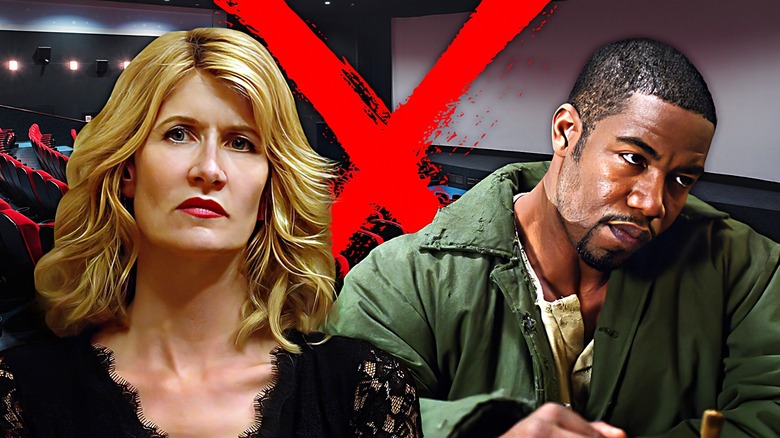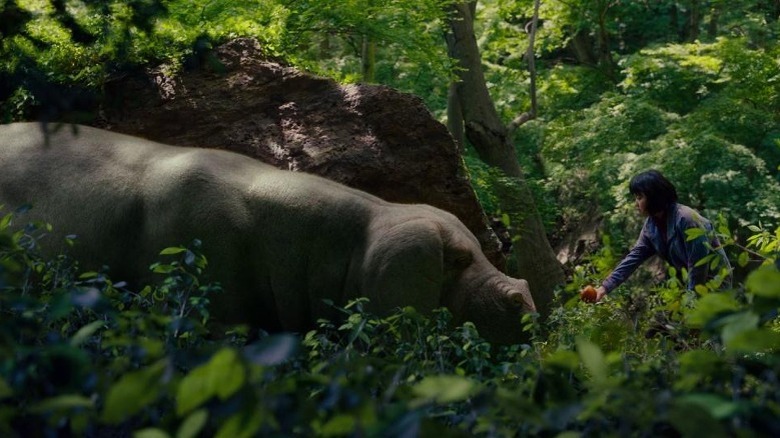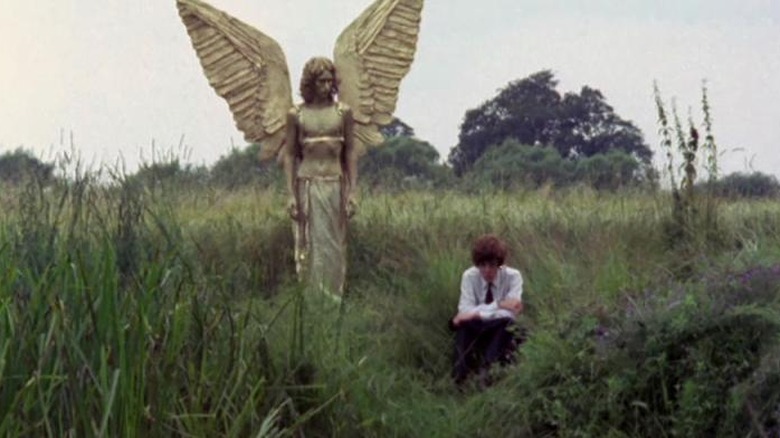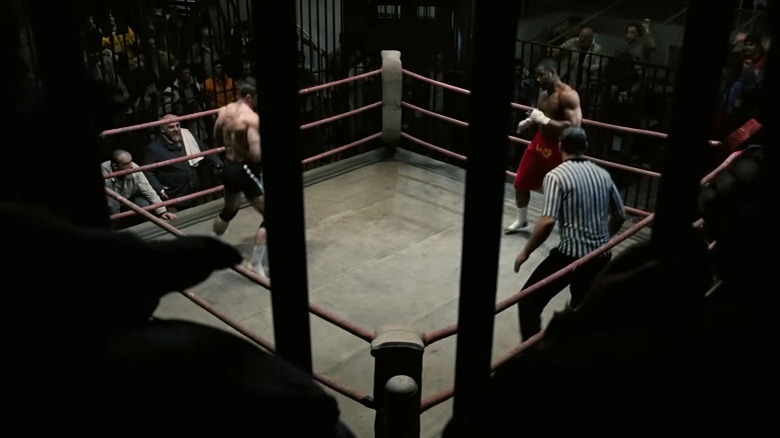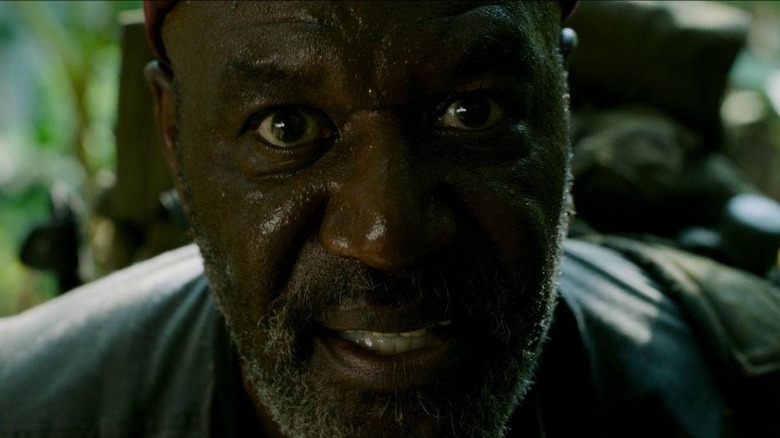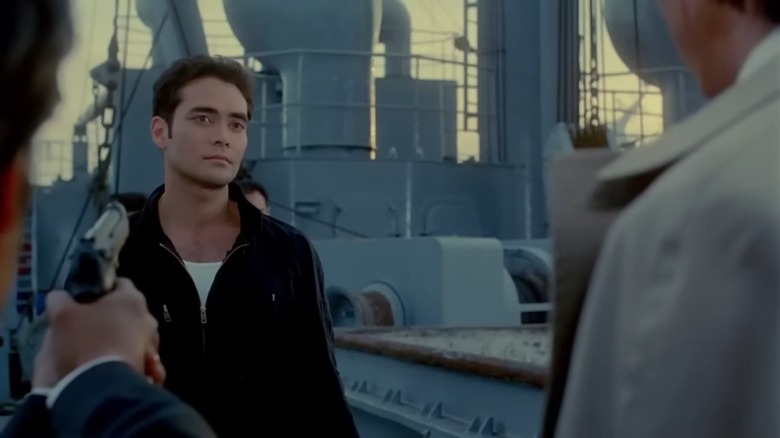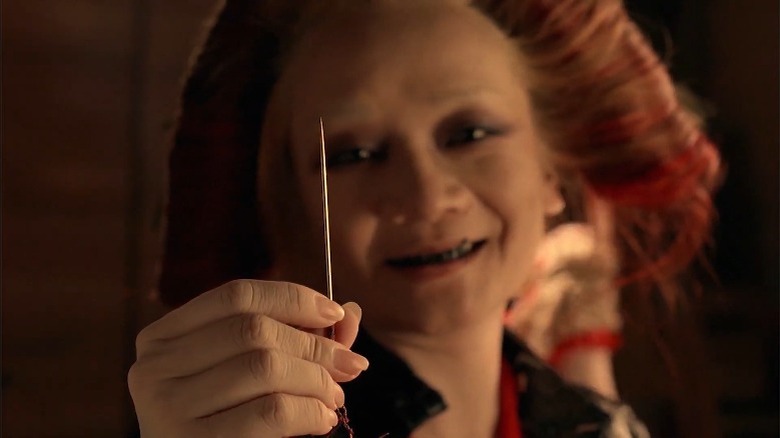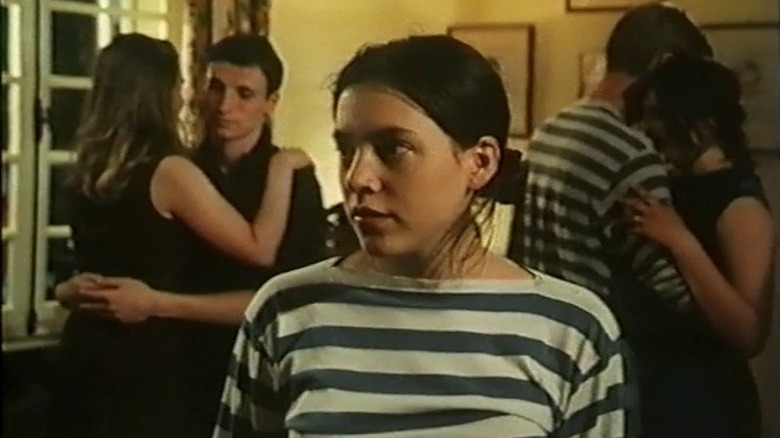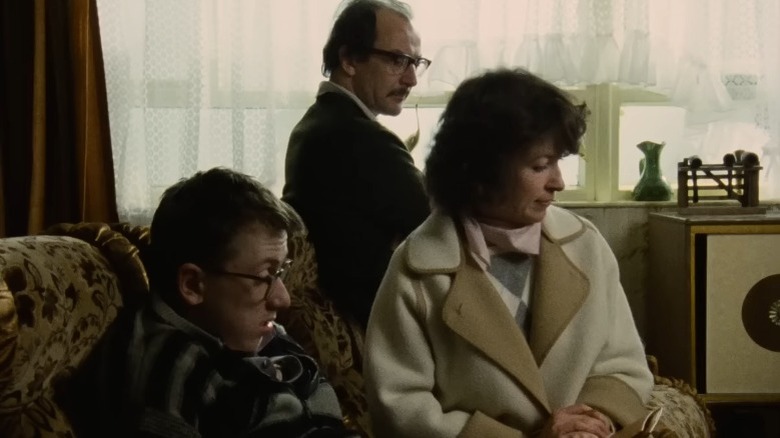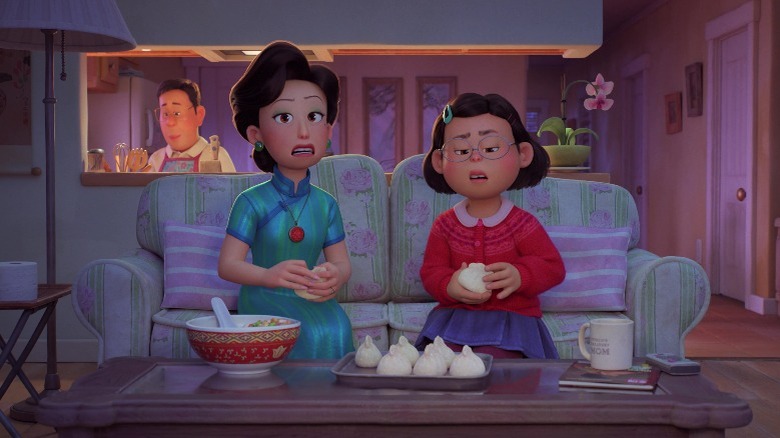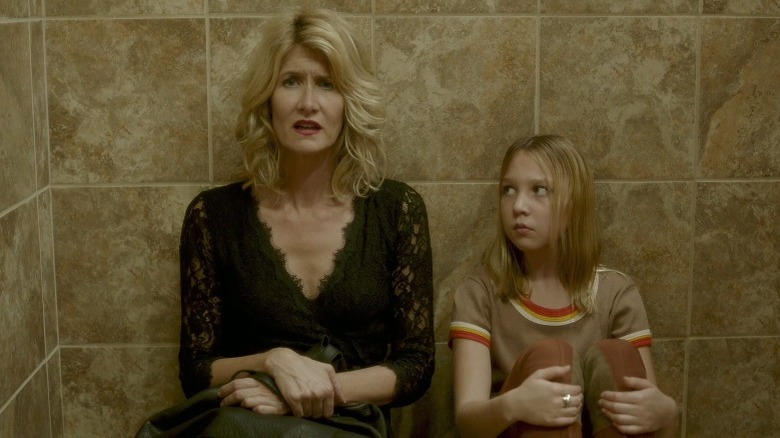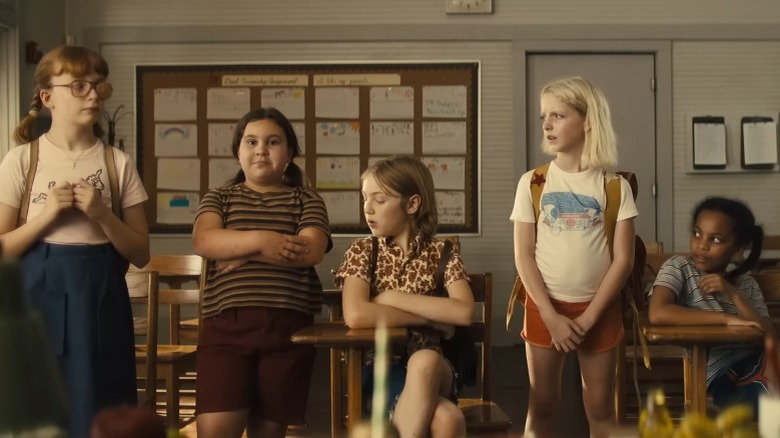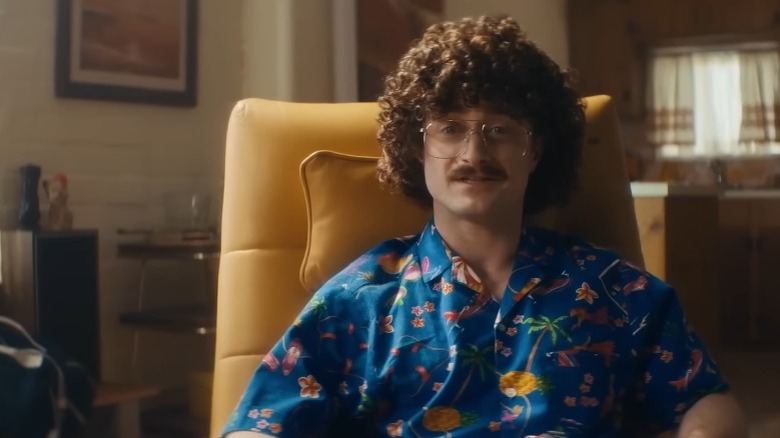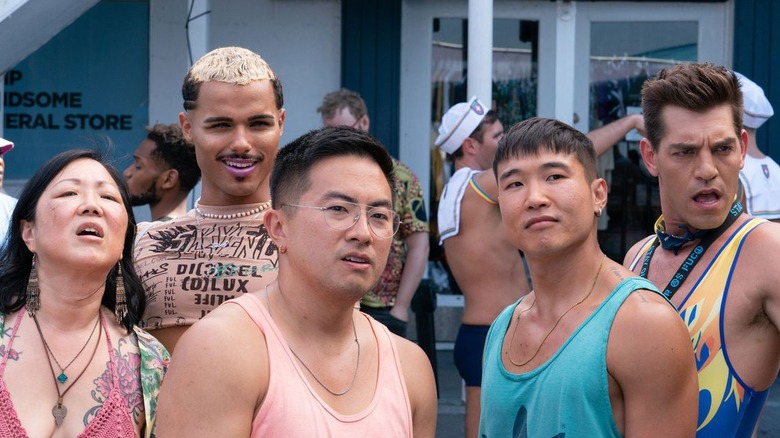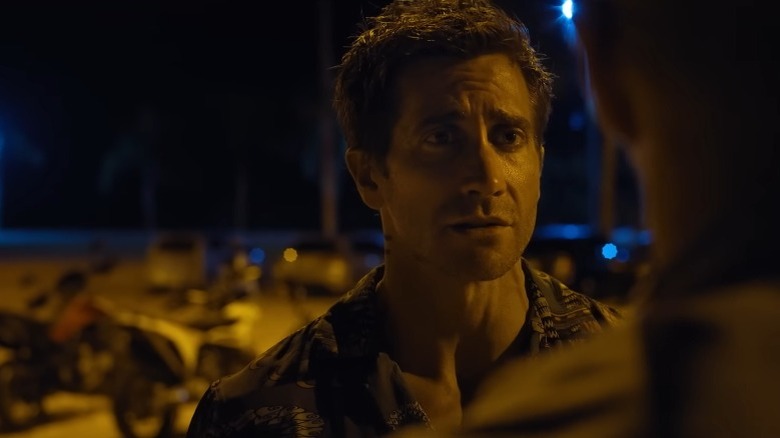The Real Reason Great Movies Skipped Theaters
The past decade has forced the world of film production, distribution, and attendance into a series of reckonings so rapid and intense as to induce vertigo. First, streaming rose as a force to be reckoned with, and streamers and theaters had to learn to coexist; then COVID came and changed the film industry forever, with streaming film viewership skyrocketing while theatrical attendance dropped dramatically, leading some to worry that film theaters might be doomed. Now, in a full-circle moment, Hollywood is learning that centering film production around subscription streaming revenue may not be an entirely sustainable model.
The one thing that's become clear throughout this whole process, if it wasn't before, is that a movie's quality has zilch to do with the circumstances that dictate how and where it's released. The number of worthwhile films that have gone straight to streaming without ever playing commercially in theaters is too great to count by now, but great movies have been skipping theaters since long before streaming, for reasons ranging from directorial intent to behind-the-scenes drama to unexpected predecessor success on DVD. Here are a few notable examples.
Okja came out before Netflix budged on theatrical windows
Bong Joon-ho's "Okja," one of the best movies of 2017, was among the first high-profile auteur films to be distributed by Netflix. Financed by the streamer itself with the aim of boosting Netflix's then-impending launch in South Korea, "Okja" premiered in competition at the 2017 Cannes Film Festival without much clarification on whether Netflix intended to ever put it in theaters, which prompted a rule change on the Croisette. It was eventually released straight to streaming, without commercial theatrical play anywhere in the world save for South Korea.
Incidentally, the film's release in Bong's home country may offer a clue as to why "Okja" largely skipped theaters altogether. At the time, Netflix still insisted that its few theatrically-distributed films must get day-and-date releases, opening simultaneously on Netflix and in theaters, which violated traditional theatrical windows of exclusivity — prompting the three largest theater chains in South Korea, which accounted for 93% of the country's screens, to refuse to screen "Okja."
A similar thing had happened two years earlier, when Cary Joji Fukunaga's "Beasts of No Nation" was boycotted in the U.S. by the AMC, Regal, Cinemark, and Carmike chains. By the time Bong made "Okja," Netflix may have calculated that an American theatrical release wasn't even worth trying for. The streamer would eventually budge and start allowing exclusive theatrical windows for flagship releases like "Roma" and "The Irishman."
Penda's Fen was originally part of a since-forgotten BBC series
Even though Alan Clarke is among the most revered and influential British filmmakers of the second half of the 20th century, he only directed a total of three theatrical films in his extensive career. The rest of Clarke's work was done — at least originally, and prior to the various repertory screenings that his films would get in later decades — in the medium of television, including "Elephant," "The Firm," and arguably his magnum opus: 1974's "Penda's Fen."
Directed by Clarke from a script by celebrated playwright David Rudkin, "Penda's Fen" was an episode in the BBC anthology series "Play for Today," which aired weekly television plays between 1970 and 1984. Yet, although nominally a play, "Penda's Fen" is very pointedly a film, featuring camera angles, editing choices, and feats of cinematic language far removed from the bureaucratic multi-camera setups of many other "Play for Today" installments.
This formal difference has allowed "Penda's Fen" to take on a life of its own, becoming one of the greatest cult classics in the history of queer cinema, a film now thought of entirely as a film rather than an episode in a series of television plays — something even Mike Leigh's dramaturgically brilliant but more formally stage-like "Play for Today" installments haven't quite managed.
Undisputed II and III were products of home video success
"Undisputed," a 2002 film about a superstar heavyweight boxer (Ving Rhames) going up against the prison champion (Wesley Snipes) after being arrested, is a minor entry in Walter Hill's filmography. "Undisputed II: Last Man Standing" and "Undisputed III: Redemption," however, are notable and well-loved among fans of martial arts cinema. It may seem ironic, considering that the first "Undisputed" was the one that got the chance to play in theaters while its two sequels went straight to DVD — but it makes sense when you consider the original film's commercial performance.
Although a solid and worthwhile sports drama, "Undisputed" was not embraced by theatrical audiences; its dismal gross of $14 million wasn't even enough to recoup its $20 million budget. But it became a hit once it was released on DVD. Maybe the home video market was always the right home for a lean, kinetic, dimly-lit, straight-to-the-point prison boxing flick — and, sure enough, when Millennium Films went ahead with an MMA-themed sequel focused on Rhames' character but replacing him with Michael Jai White, that was the market it was directly made for.
Da 5 Bloods arrived just as the pandemic hit
Between 2017 and 2020, a lot changed in Hollywood, and Netflix films that would have once been forced into day-and-date theatrical releases started getting some time on the big screen before making their way to the streamer's catalog. Had things gone as planned, that would have been the case of Spike Lee's "Da 5 Bloods," which was supposed to premiere at the Cannes Film Festival in May 2020 — out of competition, as Lee was also set to preside over the competition jury — and then roll into American theaters in May and June.
Like virtually everything in 2020, the film's release didn't go according to plan. Cannes 2020 was canceled due to the COVID-19 global pandemic, and the planned theatrical bow of "Da 5 Bloods" was also canceled. The film was instead released directly to Netflix worldwide. That didn't stop it from raking in awards come December and January of 2021. Delroy Lindo alone collected Best Actor prizes and nominations from over 50 associations, and Terence Blanchard netted a Best Original Score Academy Award nomination, under the exceptional 2020 provision that deemed streaming films Oscar-eligible as long as they had thwarted theatrical plans.
The studio canceled a theatrical run for Drive
"Drive," a 1997 sci-fi action film about a cybernetically enhanced Hong Kong man (Mark Dacascos) on the run from Chinese government agents and mercenaries trying to get their hands on his tech, is the best-remembered film of Taiwanese makeup-whiz-turned-director Steve Wang. Wang intended for the film to break new ground as a faithful Hollywood approximation of the unique rhythms and pleasures of Hong Kong action cinema, but, despite the high stature enjoyed by "Drive" among genre fans, it never got a theatrical release in the United States.
The film had a complicated production history, and Wang took advantage of limited executive oversight to depart from the original plan of making a serious and straight-faced American-style actioner. He instead incorporated humor and exaggeration, and although producers loved the dailies during the shoot, the film was ultimately recut into a much shorter and less idiosyncratic version for its theatrical release. Then the theatrical release was scrapped altogether, and "Drive" instead premiered on HBO in June 1997 before making its way to DVD and VHS shelves in August.
Decades later, Wang's vision would be vindicated; the director's cut of "Drive," now a cult classic, got a 4K restoration and a Blu-Ray re-release, in which the would-be "theatrical cut" was reduced to a little-seen bonus feature.
Takashi Miike's Imprint was too scary for Masters of Horror
There are few directors in the world more prolific than Takashi Miike; focus on any specific section of his filmography — horror films, comedies, period dramas, straight-to-video flicks — and you'll still come up with enough titles to double or triple most directors' portfolios. Even so, "Imprint" remains unique among Miike's oeuvre as the one time that the workaholic Japanese auteur directed an episode of an anthology series.
To be clear, "Imprint" wasn't Miike's only TV-bound work; he has worked on several series and miniseries over the years. It's not his only TV movie, either — he's made seven of those. But "Imprint" is still notorious among the director's fans for the opportunity it presents to see Miike, ever the cinematic chameleon, working to fit into a set template.
Originally intended as the 13th episode of the inaugural season of "Masters of Horror," Mick Garris' celebrated endeavor to bring various great names of horror into a single TV project, "Imprint" was pulled by Showtime before it could air. The reason? Even for a show featuring one-hour films directed by Tobe Hooper, Dario Argento, and John Carpenter, it was simply too disturbing. Needless to say, when "Imprint" finally came out as a self-contained film on DVD, it became the stuff of horror legend.
Portrait of a Young Girl... was a French TV film
As the critical stature of "Jeanne Dielman, 23 quai du Commerce, 1080 Bruxelles" rose dramatically and deservedly in the past decade, Chantal Akerman began to suffer from a bit of Orson Welles syndrome: her most celebrated work somewhat eclipsed the rest of her brilliant filmography. But anyone who's acquainted with Akerman's non-"Dielman" work will agree that her 1994 film "Portrait of a Young Girl at the End of the 60s in Brussels" is one of her defining masterpieces. And yet, despite being a full 138 minutes shorter than "Jeanne Dielman," "Portrait" didn't get to play theaters.
In fairness, "Portrait" was originally developed as a TV movie, or a TV episode, depending on your working definition — an entry in ARTE's nine-installment series of coming-of-age films from different directors, titled "All the Boys and Girls of Their Age." However, unlike other entries in the series, such as Olivier Assayas' "Cold Water" and André Téchiné's "Wild Reeds," "Portrait" wasn't later expanded into a theatrical film.
It seems wrong, given how influential Akerman's semi-autobiographical chronicle of a single day in a teen girl's life proved, with echoes in everything from Richard Linklater's "Before" trilogy to Joachim Trier's complete filmography. But then again, it's Chantal Akerman we're talking about — matron saint of all underrated movie geniuses.
Mike Leigh was directing TV plays when he made Meantime
Before becoming arguably the defining master of ultra-naturalist working-class cinema, Mike Leigh began his career in theater. When he moved from the stage to the soundstage and began directing and writing television plays for BBC in the 1970s, it was a natural evolution; Leigh's filmed plays in this period are not as visually or formally dynamic as his later theatrical film work, but still brim with the curiosity of a great artist trying on a new medium. Indeed, Leigh made such a cozy home for himself in television that his career as a proper filmmaker also started in it.
The first Mike Leigh film to depart entirely from the television play format was 1983's "Meantime," a trailblazing dramedy about London life in Margaret Thatcher's England, which had a healthy festival run — including screenings at the 1984 Berlinale — but never played theaters commercially in the U.K. Instead, it aired on Channel 4 as a TV movie — Leigh's first collaboration with the network, after a tenure of over 10 years at the BBC.
Disney left Turning Red by the wayside for Lightyear
During the pandemic, it was inevitable that mainstream films had to find different distribution avenues from the standard wide theatrical release model, so when Disney made the decision to release Pixar's long-awaited "Soul" in select theaters and on Disney+ simultaneously, it seemed like an entirely reasonable decision. Later, in 2021, theaters started re-opening, allowing Disney to release both "Cruella" and "Raya and the Last Dragon" theatrically — yet Pixar's "Luca" was withheld from theaters entirely. That seemed a little weirder, but still understandable; the pandemic was, after all, still at a critical height.
Then, when "Turning Red" was also withheld from theaters in 2022, despite being one of Pixar's most acclaimed films in years and sparking a cultural controversy that was exactly what the studio needed to jolt itself out of conformity, it became obvious that Disney was using Pixar's original films to beef up the Disney+ catalog. Not only did that choice shock and sadden Pixar creatives who worked on "Turning Red," but it also backfired: Later that same year, when Disney finally allowed Pixar back into theaters with "Lightyear," the convoluted "Toy Story" spin-off bombed at the box office. "Turning Red" did eventually get to play in theaters, along with "Soul" and "Luca," in 2024, but there was no good reason it ever should have skipped them.
The Tale's director wanted the biggest audience possible
Although still largely autofictional, the Laura Dern-starring "The Tale" was a departure for director Jennifer Fox, whose previous feature films had all been documentaries. It was also one of the most acclaimed films of 2018, and an essential tome in the canon of works grappling with sexual abuse in the post-#MeToo era. Yet it never got a theatrical release, instead following up its momentous Sundance premiere with an HBO acquisition; it ultimately lost the Outstanding Television Movie Emmy to a "Black Mirror" episode.
Questionable Television Academy decisions aside, Fox had a very deliberate reason to opt for HBO instead of a traditional theatrical distributor: She wanted the film to get as wide an audience as possible. Indie distributors interested in picking up the film might not have been able to provide that, whereas HBO has always been in the business of starting national conversations. And that "The Tale" did.
Troop Zero was Prime Video's first straight-to-streaming original
Amazon Studios was among the first players to get in on the changing Hollywood landscape of the post-streaming world. Unlike Netflix, however, they initially opted for a conservative, conciliatory approach to distribution. The first Amazon Studios films, including award winners like "The Handmaiden," "Manchester by the Sea," "Cold War," "The Big Sick," and many others, received fully traditional theatrical releases ahead of their Prime Video premieres, positioning the tech giant as more of a Silicon Valley answer to A24 than a Netflix-style disruptor.
It was not until 2020's "Troop Zero" that Amazon started releasing films directly to Prime Video, and it's easy to see why the Bert and Bertie-directed girl scout dramedy was chosen as the trial subject for that new distribution model after being plucked from Sundance. Warm, touching, and featuring top-form performances from Viola Davis and Allison Janney, the film is an ideal crowd-pleaser that immediately set a promising tone for what audiences could expect from full-blown Prime Video originals.
Roku went for Emmy love with Weird: The Al Yankovic Story
"Weird Al" Yankovic really, really, really wanted "Weird: The Al Yankovic Story" to get a theatrical release, but that didn't quite pan out. The film, a faux-biographical send-up of music biopic clichés that actually gets some things right about Yankovic's true story, was one of the biggest sensations of the 2022 Toronto International Film Festival. But despite Daniel Radcliffe's headline-grabbing central performance, The Roku Channel, which produced and was set to distribute "Weird" from the beginning, was adamant about skipping theaters.
"I've been begging, begging the Roku Channel for months to make it eligible [for Academy Awards], which all that would involve is letting it play in a theater in LA for one week ... but they've put their foot down," Yankovic told Yahoo! Entertainment in October 2022. The ad-supported free streamer instead preferred to focus its efforts on securing Primetime Emmy eligibility. The strategy worked out well: "Weird" went on to win the Emmy for Outstanding Television Movie, in a crowded field that also included "Fire Island" and "Prey."
Fire Island was developed from a canceled Quibi series
Speaking of "Fire Island," that film may be the single greatest blessing brought upon the world — albeit indirectly — by Quibi. The Joel Kim Booster-scripted and Andrew Ahn-directed film, possibly one of the best and most hilarious queer romantic comedies of all time and a case study in the exciting new techniques being explored by contemporary romcoms, began development as a 10-episode Quibi original series titled "Trip." Cut to a year later, and the short-form streaming platform officially shut down after a very brief existence, leaving the production of "Trip" up in the air.
Thankfully, Searchlight Pictures acquired the project a few months later; since Booster had already envisioned it as a movie broken up into 10 parts, the script didn't take much retooling. The vote of confidence from Searchlight still wasn't enough to propel Booster's brainchild — now retitled "Fire Island" — into theaters. But, considering Quibi was originally the only place interested in a queer Asian romcom full of hyper-specific gay inside jokes, even the film's ultimate Hulu release was a big win.
Amazon's MGM purchase impacted the Road House remake
As a muscular, pleasurable genre flick with a megastar at the center, Doug Liman's Jake Gyllenhaal-starring remake of "Road House" could just as well have played in theaters instead of going straight to Prime Video — indeed, that's what Liman himself expected.
When his take on "Road House" tentatively began development at MGM in 2021, the legendary studio hadn't yet been bought by Amazon. Following the buyout, "Road House" was developed as an Amazon MGM film, and went on to bypass theaters, prompting a round of intense public drama.
Liman wrote an op-ed for Deadline voicing his dissatisfaction with the straight-to-streaming release, claiming that Amazon had left the possibility of theatrical distribution on the table if the film were good enough; things were further complicated when sources told Variety that the filmmakers willingly opted for a streaming release in order to be granted a higher budget by Amazon. The truth remains unclear, but what is clear is that Amazon won that bout.
